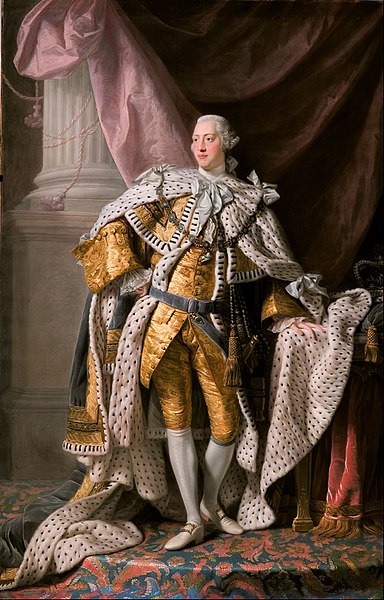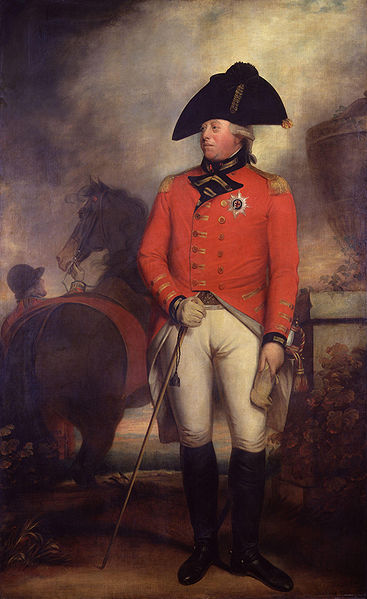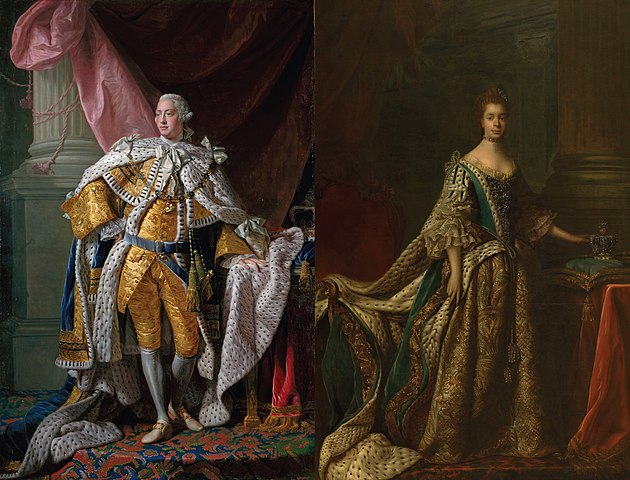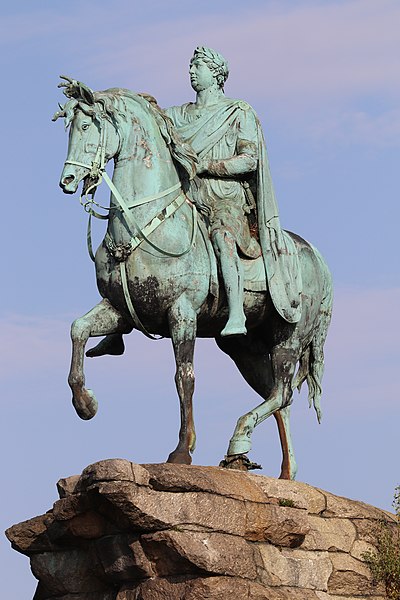King George III, born on June 4, 1738, in London, England, was a significant figure in British history. He reigned as the King of Great Britain and Ireland from 1760 until 1801, and then as the King of the United Kingdom of Great Britain and Ireland from 1801 until his death in 1820.
George III’s reign was marked by notable events such as the American Revolutionary War and the beginning of the Industrial Revolution. Despite being remembered for his mental illness, George III was a diligent monarch who took an active interest in governance.
His reign witnessed both territorial expansions of the British Empire and the consolidation of the United Kingdom. George III’s contributions and challenges have left a lasting impact on British history and his era is remembered as a time of significant political, social, and economic change.
King George III Facts
1. King George III was born on June 4, 1738, in London, England
King George III was born on June 4, 1738, in London, England. He ascended to the throne on October 25, 1760, following the death of his grandfather, King George II. At the age of 22, he became the King of Great Britain and Ireland.
Also Read: King George III Accomplishments
In 1801, the Kingdom of Great Britain and the Kingdom of Ireland were merged, forming the United Kingdom of Great Britain and Ireland, and George III became the first monarch of the new kingdom.

2. George III was the longest-reigning king in British history at the time
George III’s reign lasted for an impressive 59 years and 96 days, making him the longest-reigning king in British history at that time. This record was later surpassed by Queen Victoria, who reigned for over 63 years.
3. He is often associated with the American Revolutionary War
George III’s reign coincided with the American Revolutionary War (1775-1783), which resulted in the thirteen American colonies breaking away from British rule and forming the United States of America.
His policies and actions, such as imposing taxes and asserting British authority, contributed to the growing discontent among the colonists, leading to the Declaration of Independence in 1776. The war ended in British defeat and marked a significant turning point in world history.

4. King George III suffered from mental illness
Throughout his life, George III struggled with mental illness. It is believed that he suffered from a hereditary blood disorder called porphyria, although the exact nature of his condition remains debated among historians and medical experts.
The illness caused him to experience periods of instability, erratic behavior, and physical discomfort. During his later years, his mental health deteriorated further, and he became permanently incapacitated.
5. Despite his mental health struggles, George III was known to be a hardworking and diligent king
Despite his mental health challenges, George III was a diligent and hardworking king. He took a keen interest in governmental affairs, often attending council meetings and involving himself in policy decisions.
His dedication to his role as king is evidenced by his long reign and his efforts to promote the welfare of his subjects. However, his bouts of mental illness occasionally impacted his ability to rule effectively, leading to the need for regency during the later stages of his reign.
6. George III was married to Charlotte of Mecklenburg-Strelitz

King George III was married to Charlotte of Mecklenburg-Strelitz. The couple wed on September 8, 1761, just over a year after George ascended to the throne.
They had a strong and devoted marriage, and Charlotte was known for her modesty and moral values. Together, they had 15 children, with their eldest son, George, eventually succeeding his father as King George IV.
7. The loss of the American colonies was a significant blow to George III
The loss of the American colonies was a significant blow to George III. Despite his desire for reconciliation, his policies and the actions of the British government contributed to the growing tensions between Britain and the colonies.
Following the American Revolutionary War, George III faced significant criticism for his handling of the situation. He contemplated abdicating the throne after the war, but he ultimately chose to remain king and focused on strengthening Britain’s other colonial holdings.
8. During his reign, the Industrial Revolution began in Britain, transforming the country into a major industrial power
King George III’s reign coincided with the beginning of the Industrial Revolution in Britain. This transformative period brought about profound changes in manufacturing, agriculture, and transportation.
George III recognized the importance of technological advancements and supported the growth of industries. During his reign, the steam engine was developed, and factories began to flourish. The Industrial Revolution marked a turning point in British history, establishing the country as a major industrial power.

9. George III was a patron of the arts and sciences
George III had a deep appreciation for the arts and sciences. In 1768, he founded the Royal Academy of Arts, which aimed to promote and support artistic excellence in Britain. He also had a passion for scientific inquiry and exploration.
George III sponsored several voyages of discovery, including those led by Captain James Cook, which explored and mapped new lands. Furthermore, he took a keen interest in natural history and supported scientific institutions and scholars.
10. In 1800, the Acts of Union were passed, which united Great Britain and Ireland under a single political entity
In 1800, the Acts of Union were passed, effectively merging the Kingdom of Great Britain and the Kingdom of Ireland into a single political entity known as the United Kingdom of Great Britain and Ireland.
As a result, George III became the first monarch of the United Kingdom. The Acts of Union aimed to strengthen the political and economic ties between Britain and Ireland, and George III played a significant role in bringing about this union, albeit with some opposition from Irish nationalists. The United Kingdom remained as such until the establishment of the Irish Free State in 1922.
11. The American Declaration of Independence, which was signed on July 4, 1776, referred to King George III
The American Declaration of Independence, signed on July 4, 1776, listed numerous grievances against King George III. The document portrayed him as a tyrant who had violated the rights of the American colonists.
The Declaration marked a significant moment in history, as it formally declared the thirteen colonies’ intention to break away from British rule and establish an independent nation.
While George III’s policies and actions contributed to the tensions that led to the American Revolution, it is worth noting that he was not solely responsible for the conflict, as there were other political and economic factors at play.
12. George III’s mental illness, characterized by episodes of madness, led to a regency crisis in 1788
George III’s mental illness, characterized by episodes of madness, created a regency crisis in 1788. During one of his bouts of illness, he became temporarily incapacitated, raising concerns about the continuity of governance.
To address this issue, the Regency Act of 1789 was passed, which appointed his eldest son, George, Prince of Wales, as Prince Regent to act on his father’s behalf. The regency continued until George III’s death in 1820, with his son ruling as George IV.
13. King George III’s reign saw significant territorial gains for the British Empire
King George III’s reign saw significant territorial gains for the British Empire. The British East India Company expanded its control over large parts of India during this period, establishing British colonial rule in the region.
Additionally, Britain acquired territories in the Caribbean, including Jamaica and Trinidad, and established a strong presence in West Africa, particularly in regions involved in the slave trade. These territorial acquisitions contributed to the growth and influence of the British Empire.
14. In 1811, George III’s mental health deteriorated to the point where he became permanently incapacitated
In 1811, George III’s mental health declined to the point where he became permanently incapacitated and was unable to fulfill his royal duties. As a result, his eldest son, George, Prince of Wales, assumed the role of Prince Regent.
The Prince Regent effectively ruled the kingdom in his father’s stead, and this period is often referred to as the Regency era. The Prince Regent later became King George IV upon his father’s death in 1820.
15. After his death, King George III was succeeded by his son, George IV
Following his death, King George III was succeeded by his son, George IV. Despite the controversies and challenges faced during his reign, George III is remembered as a significant figure in British history.
His reign marked a period of important political, social, and economic changes, including the loss of the American colonies, the growth of the Industrial Revolution, and the consolidation of the United Kingdom.
George III’s reign also witnessed the expansion of the British Empire and his active support for the arts, sciences, and exploration left a lasting impact on British society.
